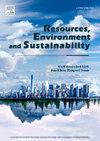在实践中与传粉昆虫的减少作斗争——西班牙阿拉贡,农民愿意接受一项保护传粉昆虫的生态计划
IF 12.4
Q1 ENVIRONMENTAL SCIENCES
引用次数: 0
摘要
我们在共同农业政策(CAP) 2023-2027框架下设计了一个生态方案,整合了两种最相关的传粉媒介保护农业实践:留出保护用地和减少农药。我们的主要目标是:(i)衡量农民接受实施对传粉媒介友好的农业做法的意愿,(ii)评估农民对环境问题的关注和对这种意愿的建议来源的影响。一项选择实验用于衡量农民对两种具有阿拉贡和地中海农业代表性的种植系统中生态方案替代设计的偏好:雨养粗养作物和灌溉/永久作物。正如我们所发现的,阿拉贡农民愿意在一定程度上采用农业实践来保护传粉媒介,如果他们得到报酬的话。这尤其适用于留出土地用于保护,在目前的西班牙单一支付(每公顷支付)中可以接受更苛刻的做法。减少或消除杀虫剂所需的支付将远远超出西班牙目前的单一支付。灌溉/永久种植作物的农民比雨养作物的农民需要更多的补贴。持环保态度的农民选择了对环境要求更高的替代水平,以节省农业用地和减少农药。最后,如果合作社在促进生态计划方面发挥积极作用,生态计划的采用可能会更容易。本文提出的假设生态方案可以很容易地在CAP生态方案中实施,同时整合欧洲传粉者倡议、2030年生物多样性战略和从农场到餐桌战略的目标。本文章由计算机程序翻译,如有差异,请以英文原文为准。

Fighting the pollinators decline in practice – Farmers’ willingness to accept an eco-scheme for their conservation in Aragon, Spain
We design an eco-scheme under the framework of the Common Agricultural Policy (CAP) 2023–2027 integrating the two most relevant agricultural practices for pollinator conservation: setting aside conservation land areas and reducing pesticides. Our main objectives are: (i) to measure farmers’ willingness to accept the implementation of pollinators-friendly agricultural practices, and (ii) to assess the effect of farmers’ environmental concerns and the source of recommendation on said willingness. A choice experiment is used to measure farmers’ preference for alternative designs of the eco-scheme in two cropping systems representative of the Aragonese and Mediterranean agriculture: rainfed extensive crops and irrigated/permanent crops.
As we find, Aragonese farmers are willing to uptake agricultural practices for pollinator conservation to certain extent if they are paid to do so. This is especially true for setting aside land for conservation where more demanding practices could be accepted within current Spanish unitary payments (per ha payment). The reduction or elimination of pesticides would require payments far beyond current Spanish unitary payments. Irrigated/permanent crop farmers require larger payments than rainfed crop farmers. Farmers with pro-environmental attitudes selected more environmentally-demanding alternative levels both for sparing agricultural land and reducing pesticides. Finally, the uptake of the eco-scheme could be easier if cooperatives play an active role in its promotion. The hypothetical eco-scheme presented here could be readily implemented within CAP eco-schemes while integrating the objectives of the European Pollinators Initiative, the Biodiversity Strategy 2030 and the Farm to Fork Strategy.
求助全文
通过发布文献求助,成功后即可免费获取论文全文。
去求助
来源期刊

Resources Environment and Sustainability
Environmental Science-Environmental Science (miscellaneous)
CiteScore
15.10
自引率
0.00%
发文量
41
审稿时长
33 days
 求助内容:
求助内容: 应助结果提醒方式:
应助结果提醒方式:


